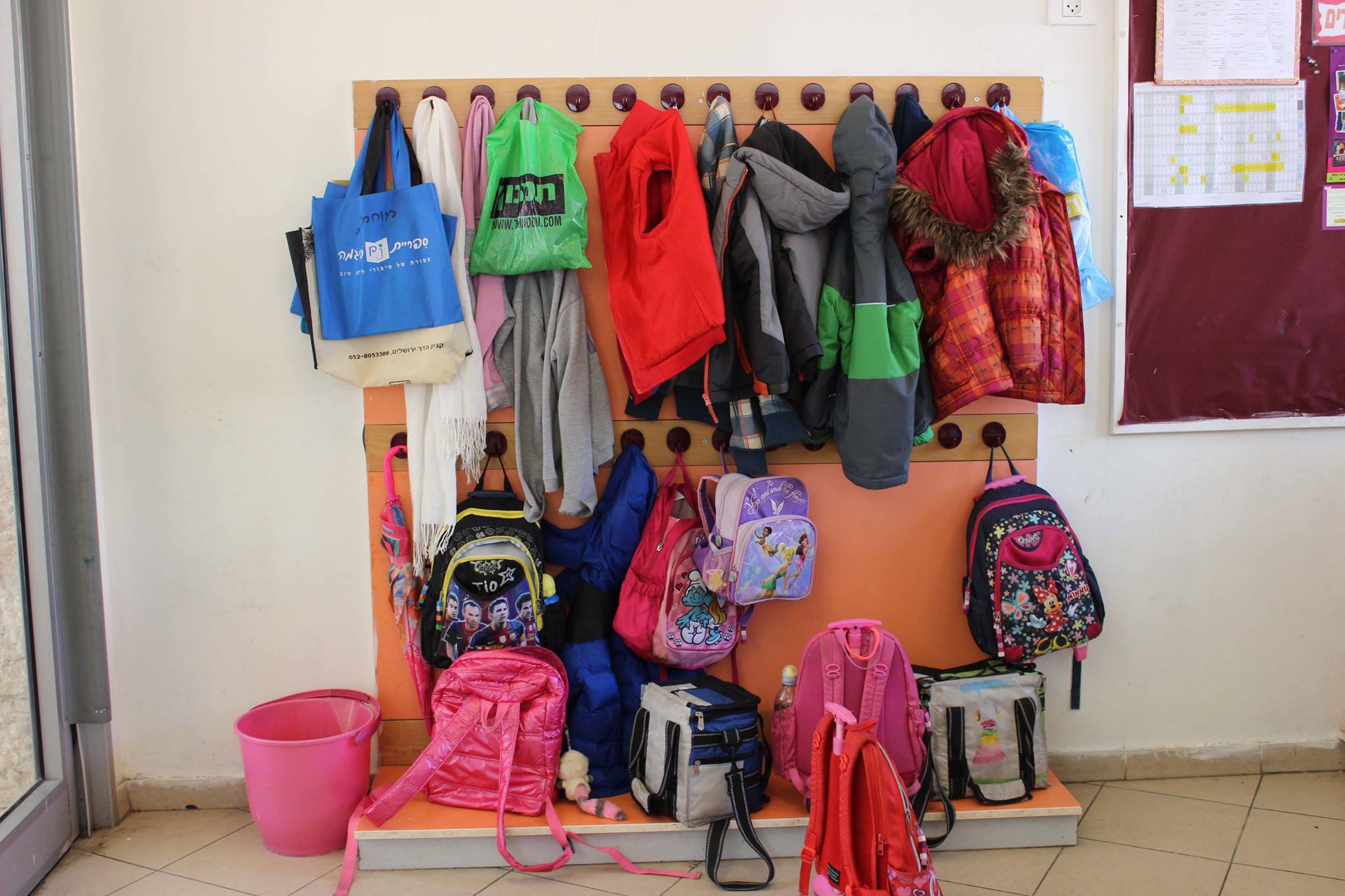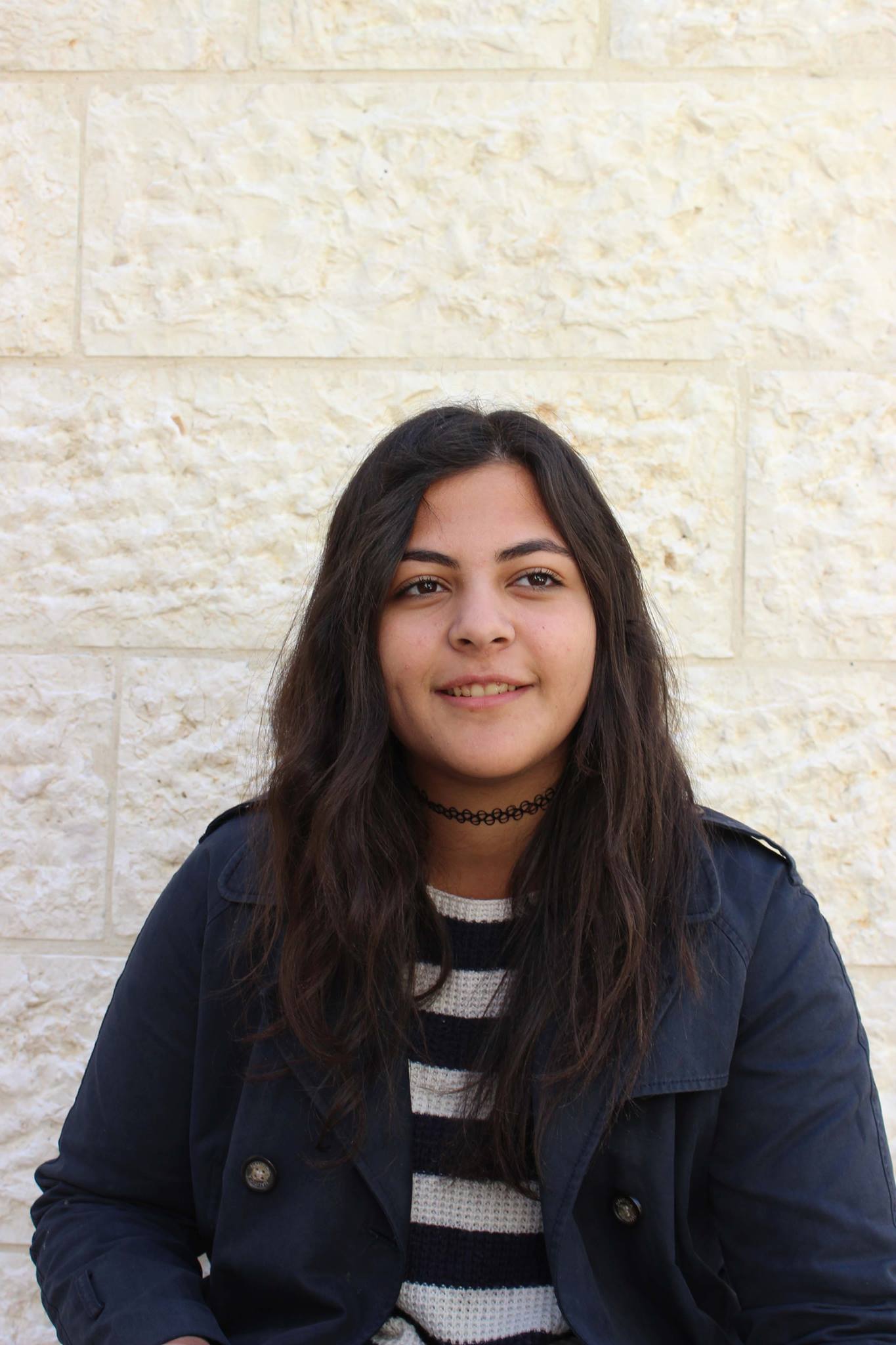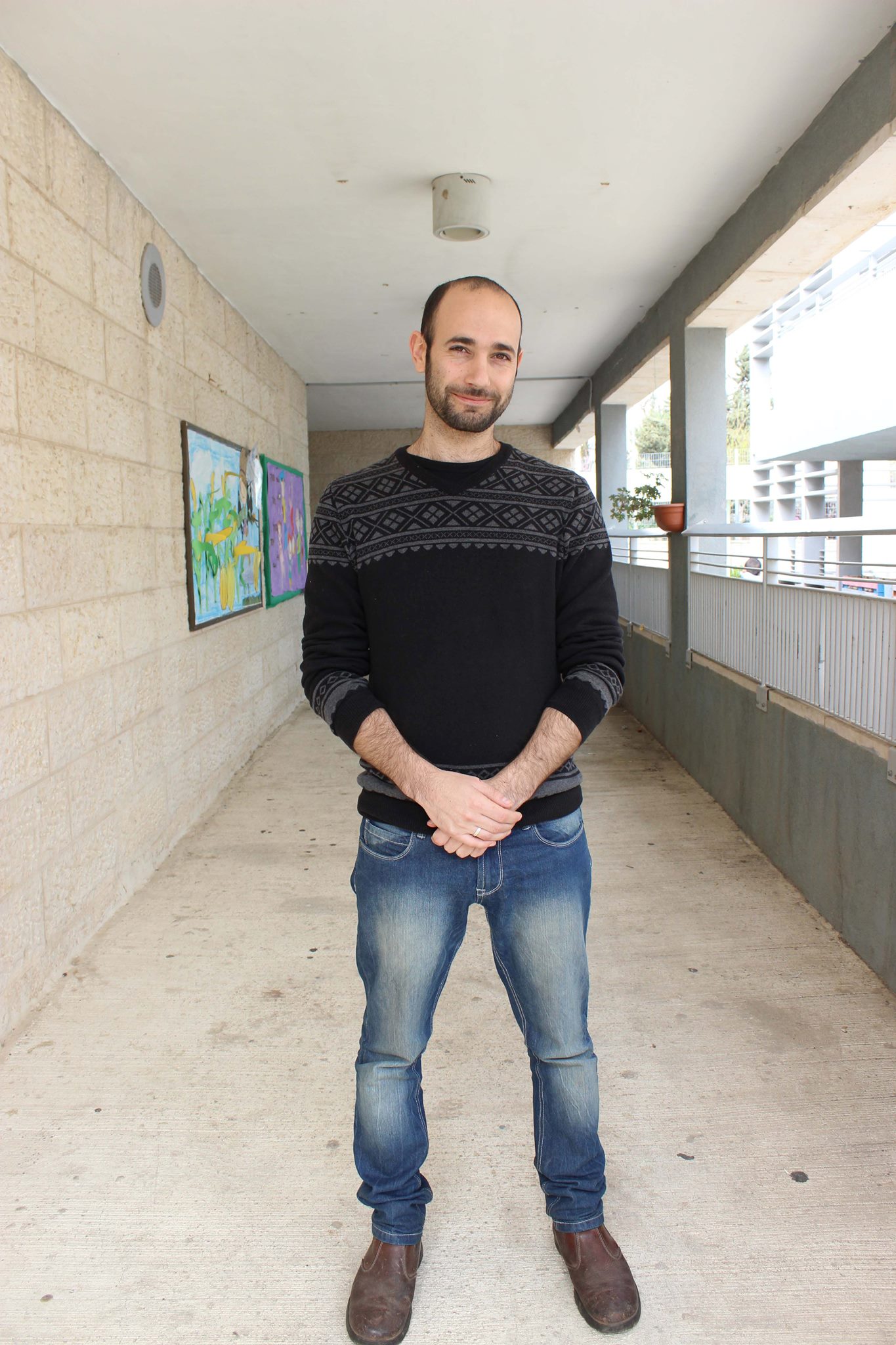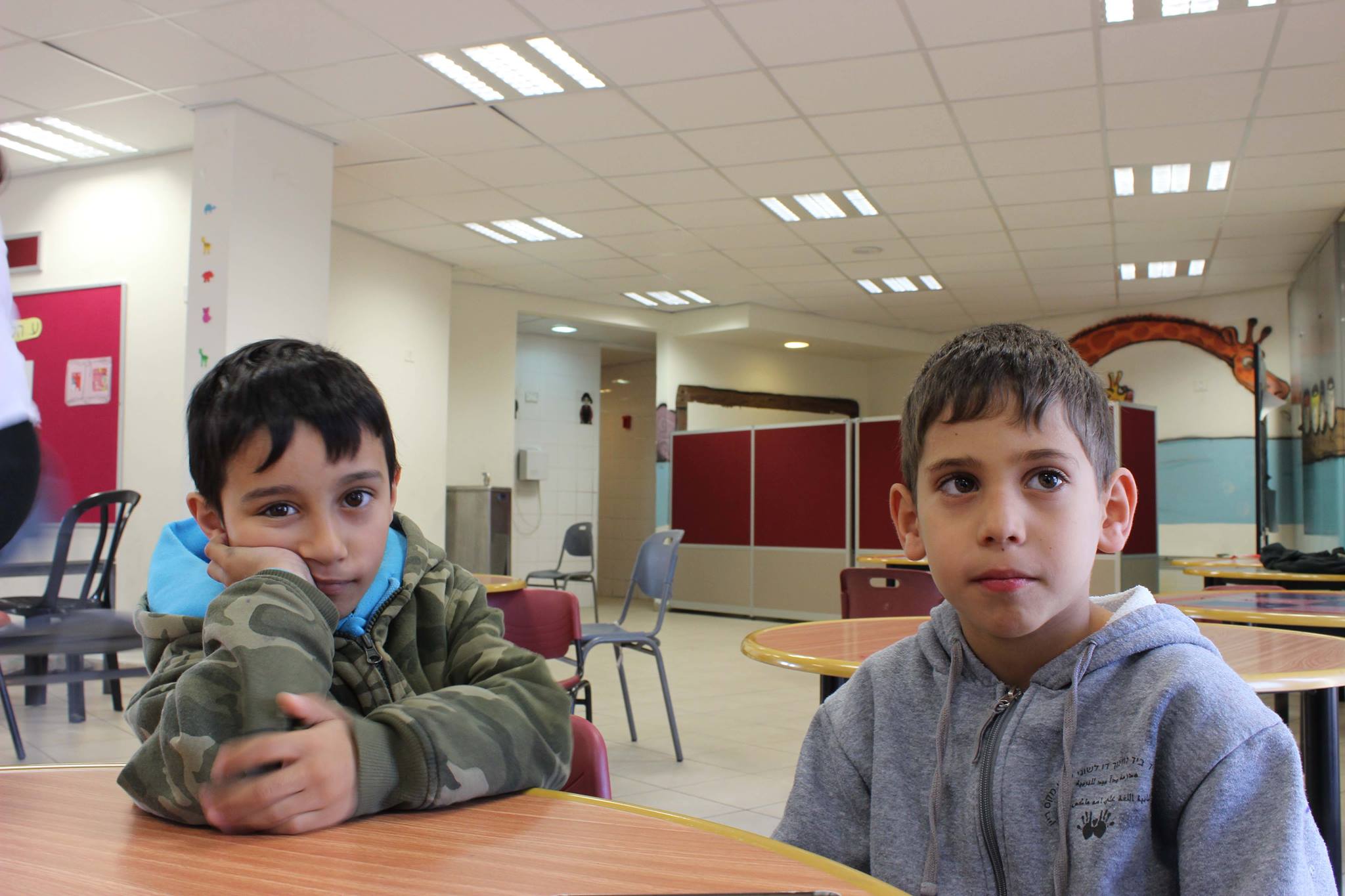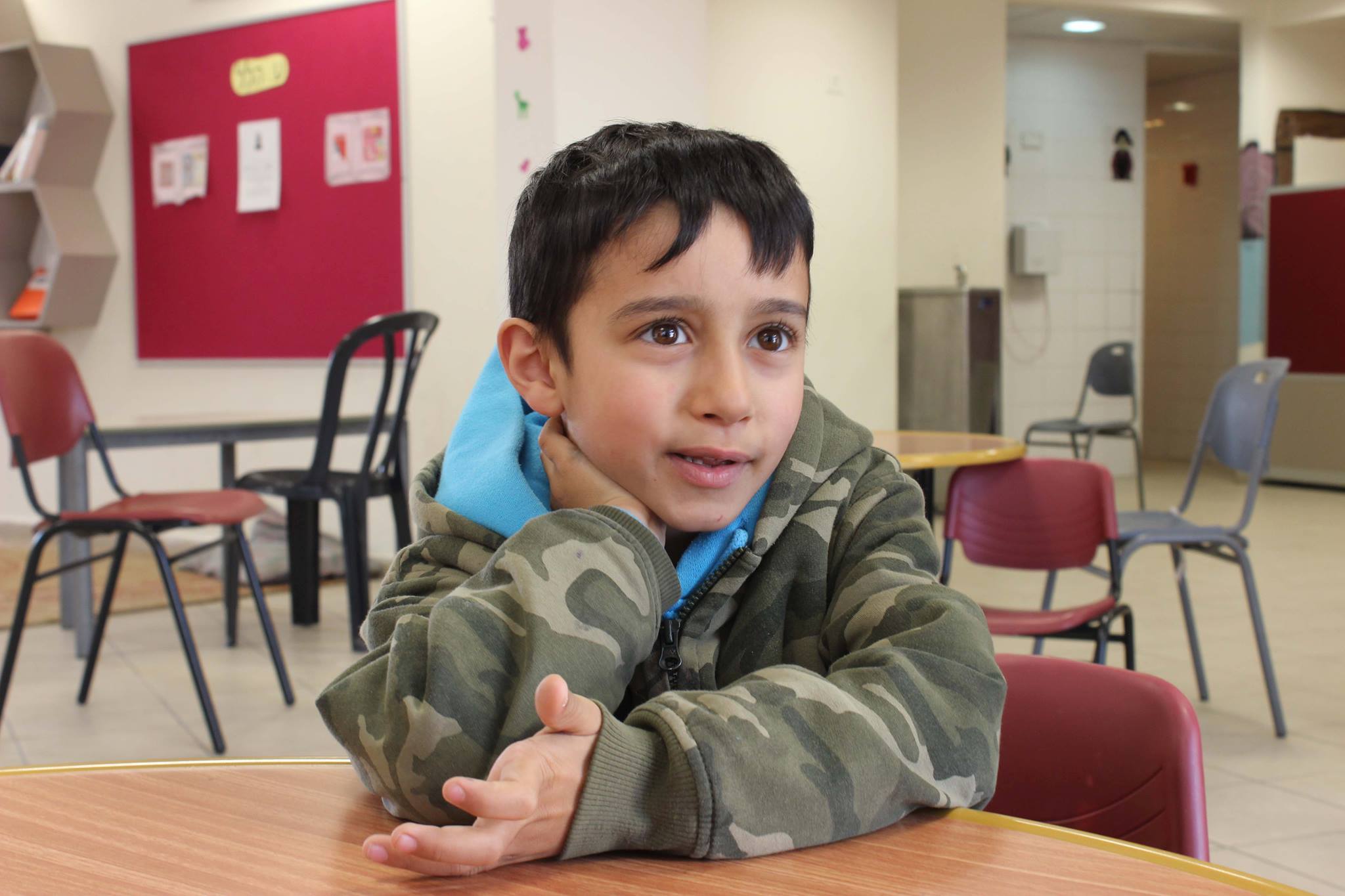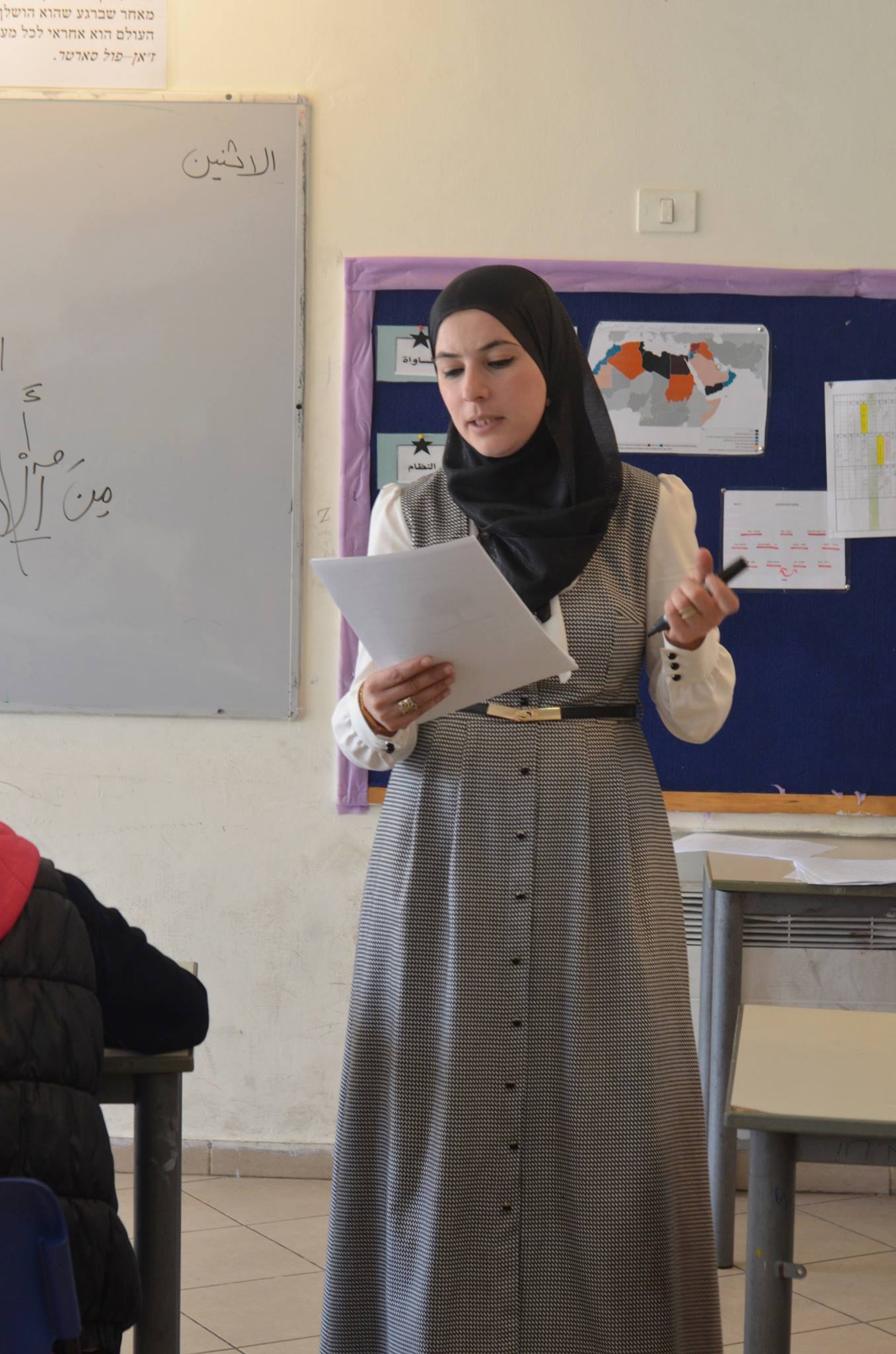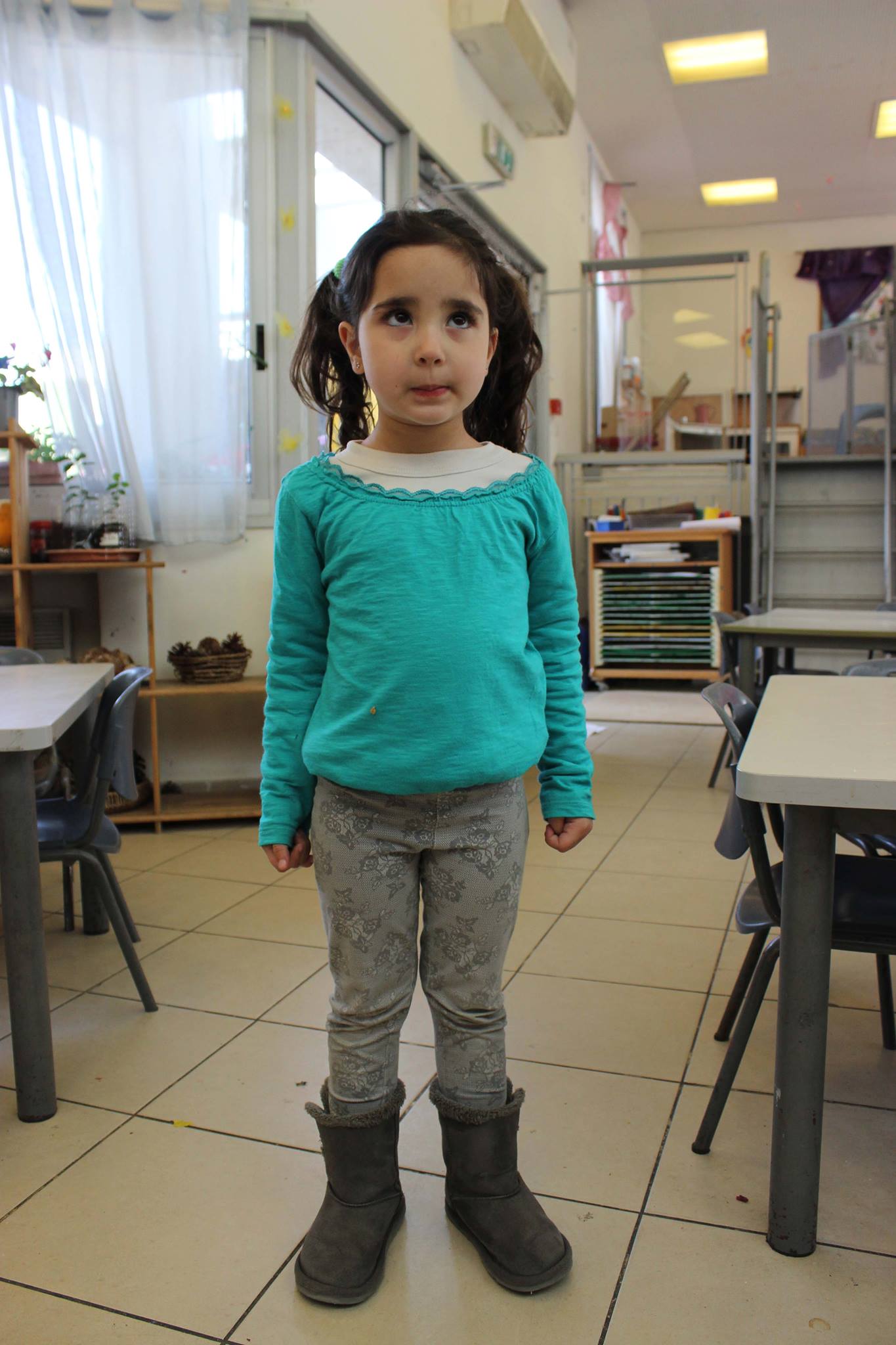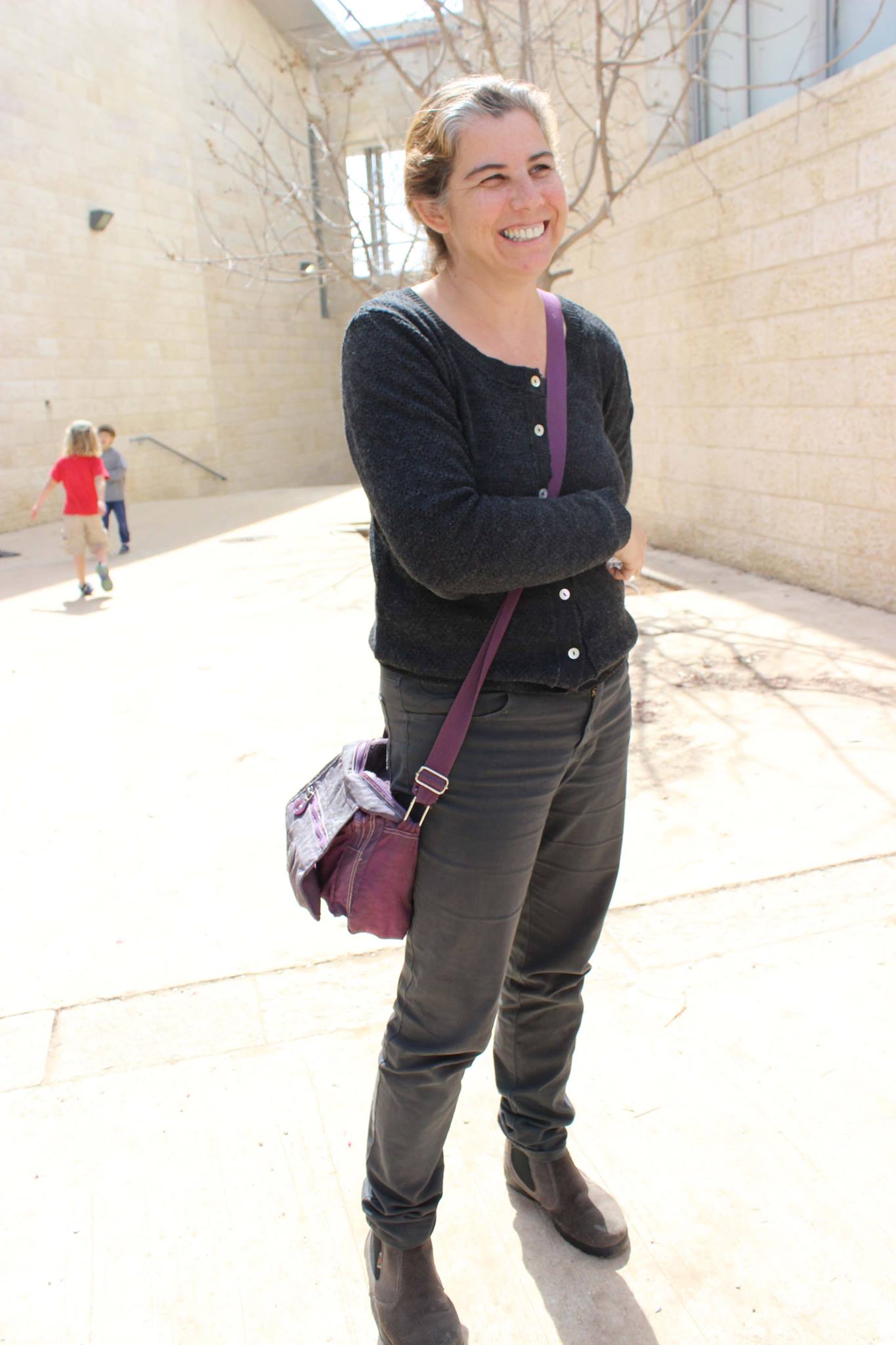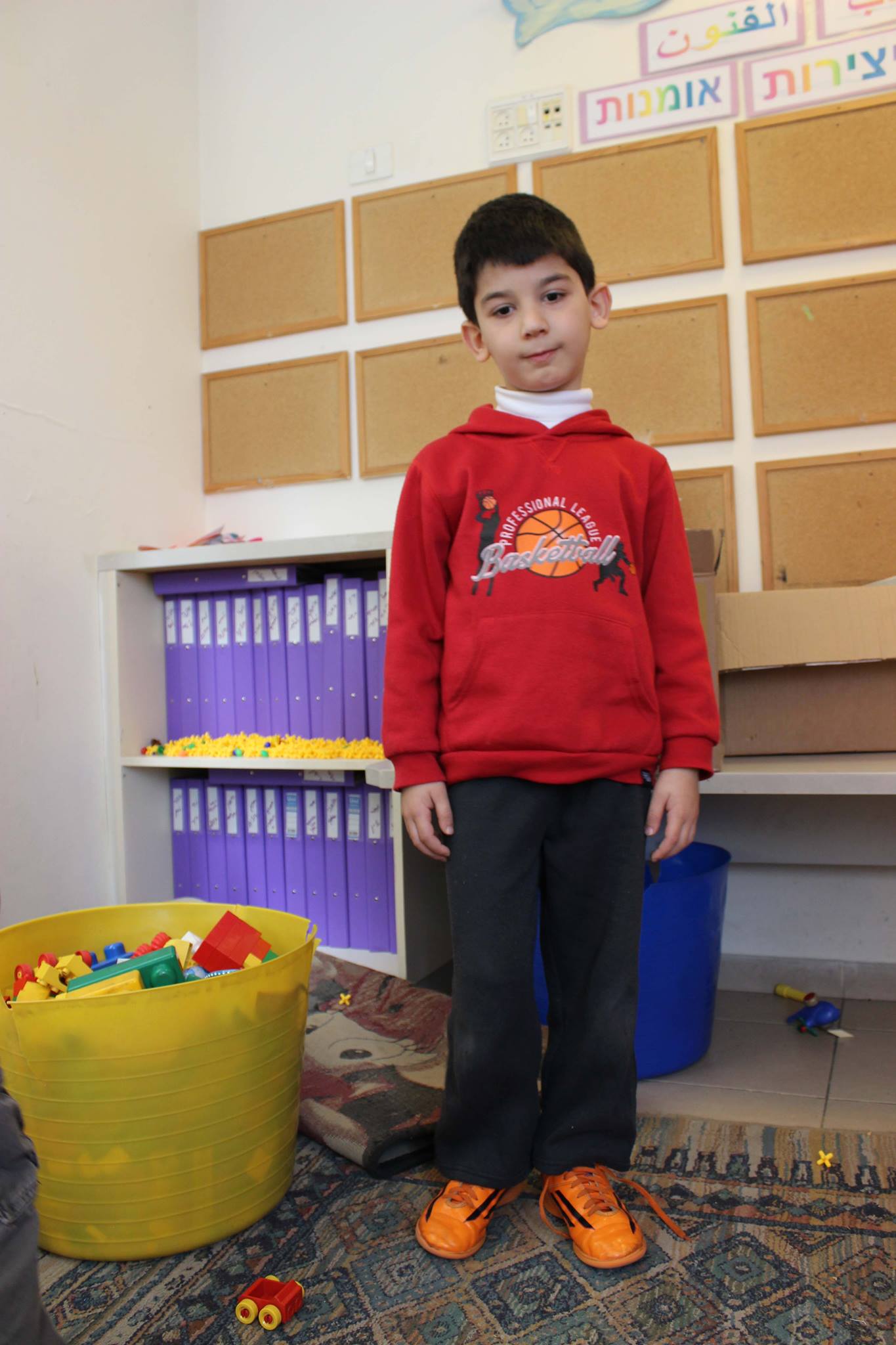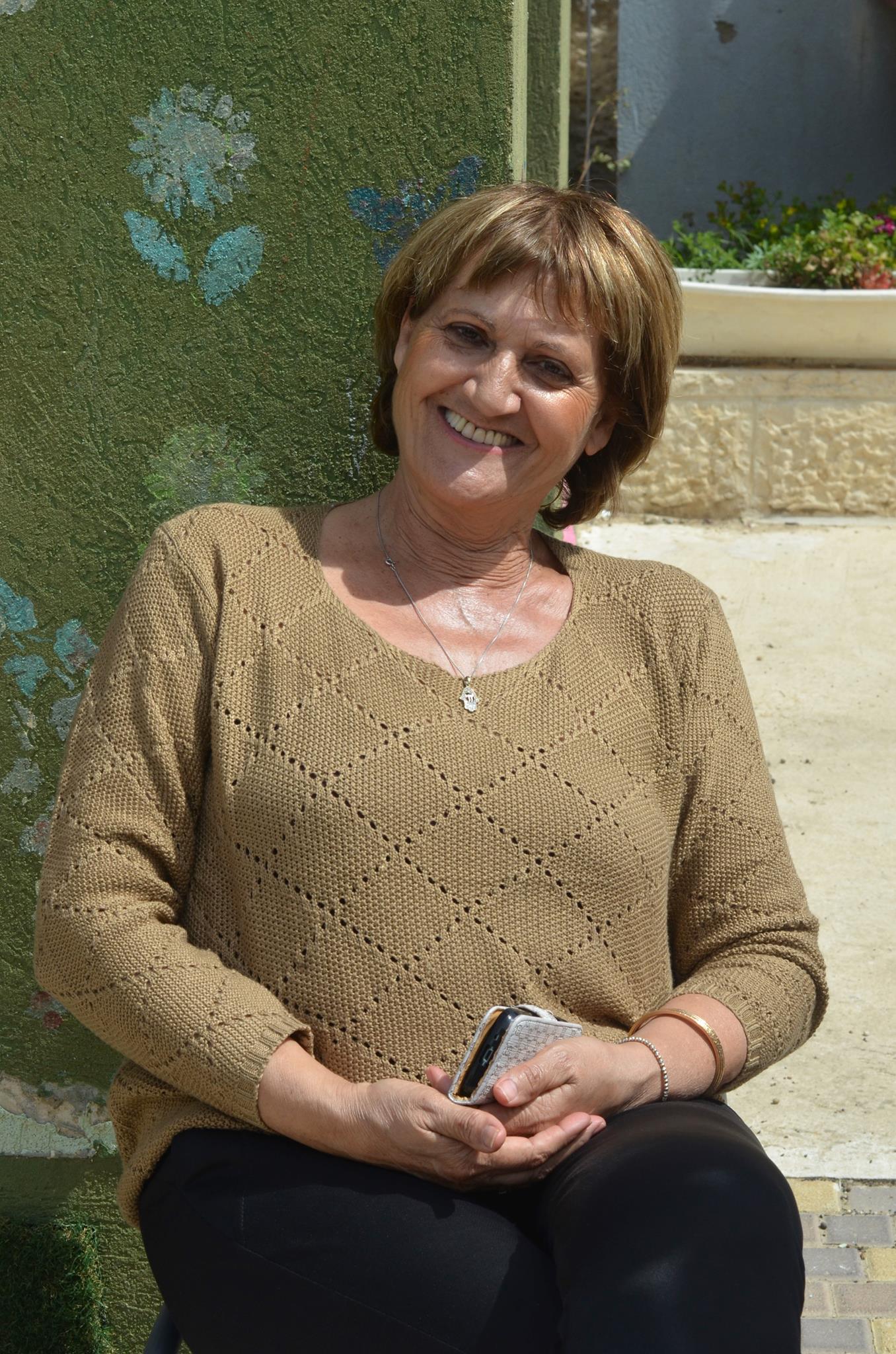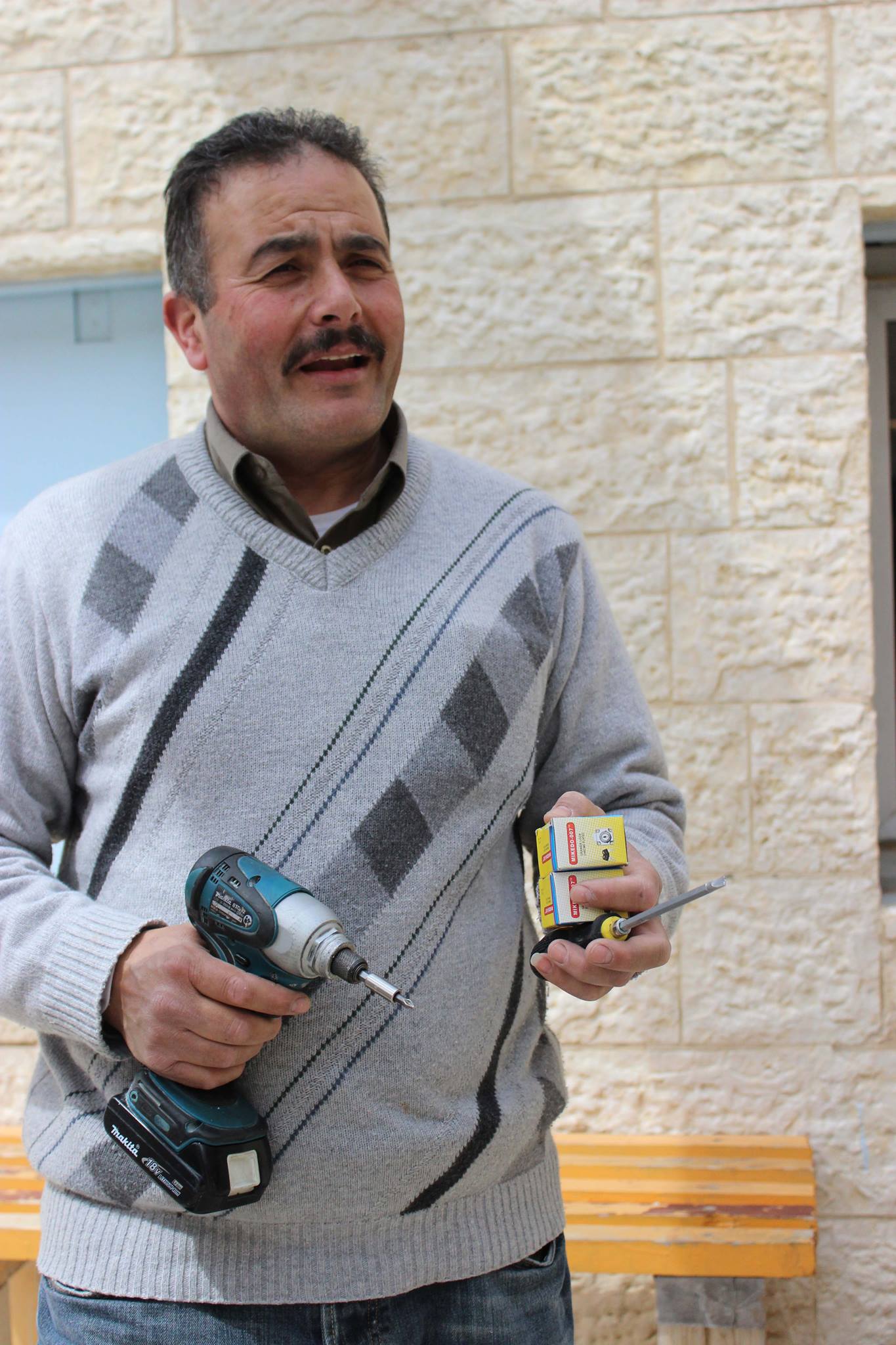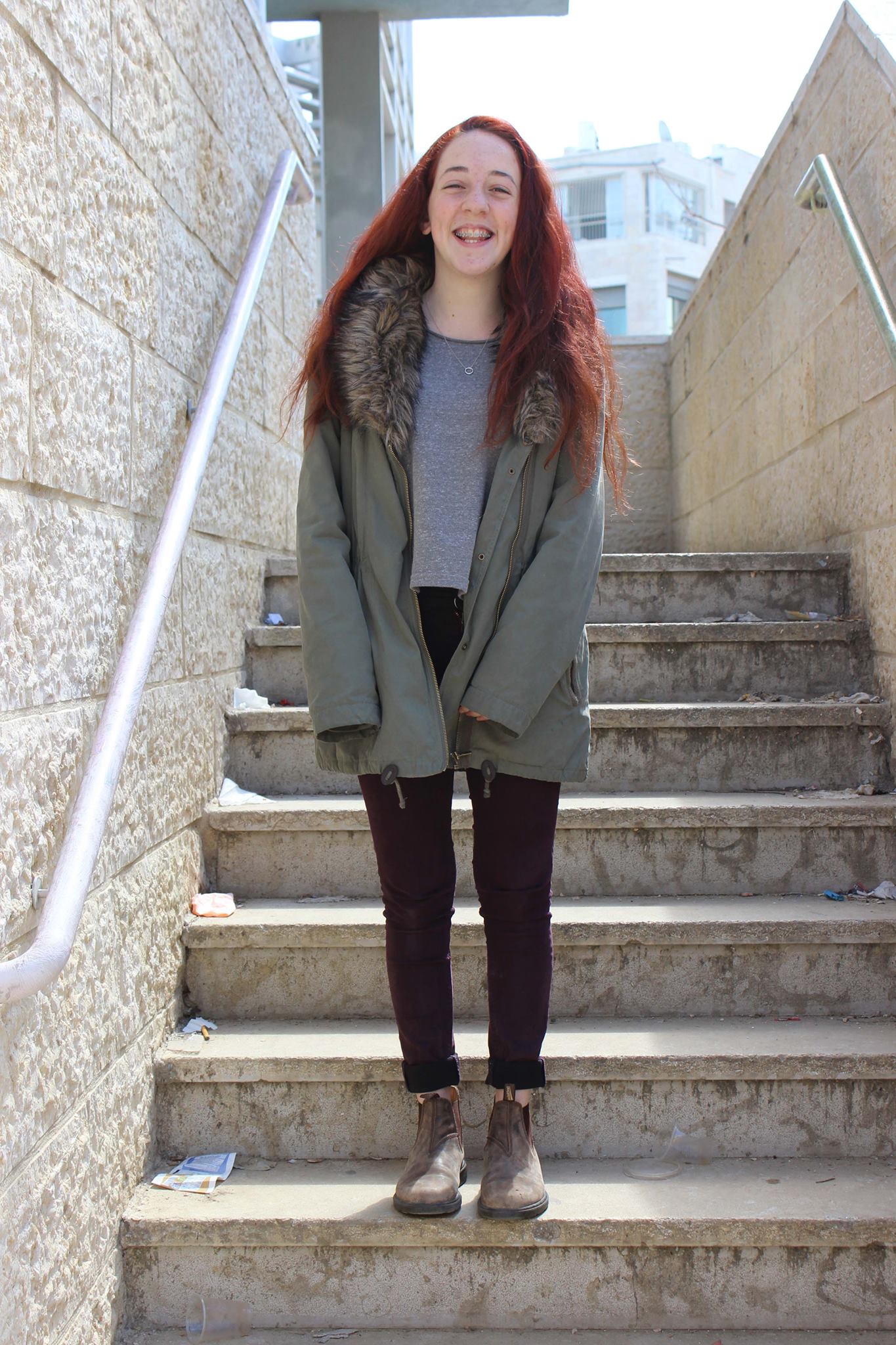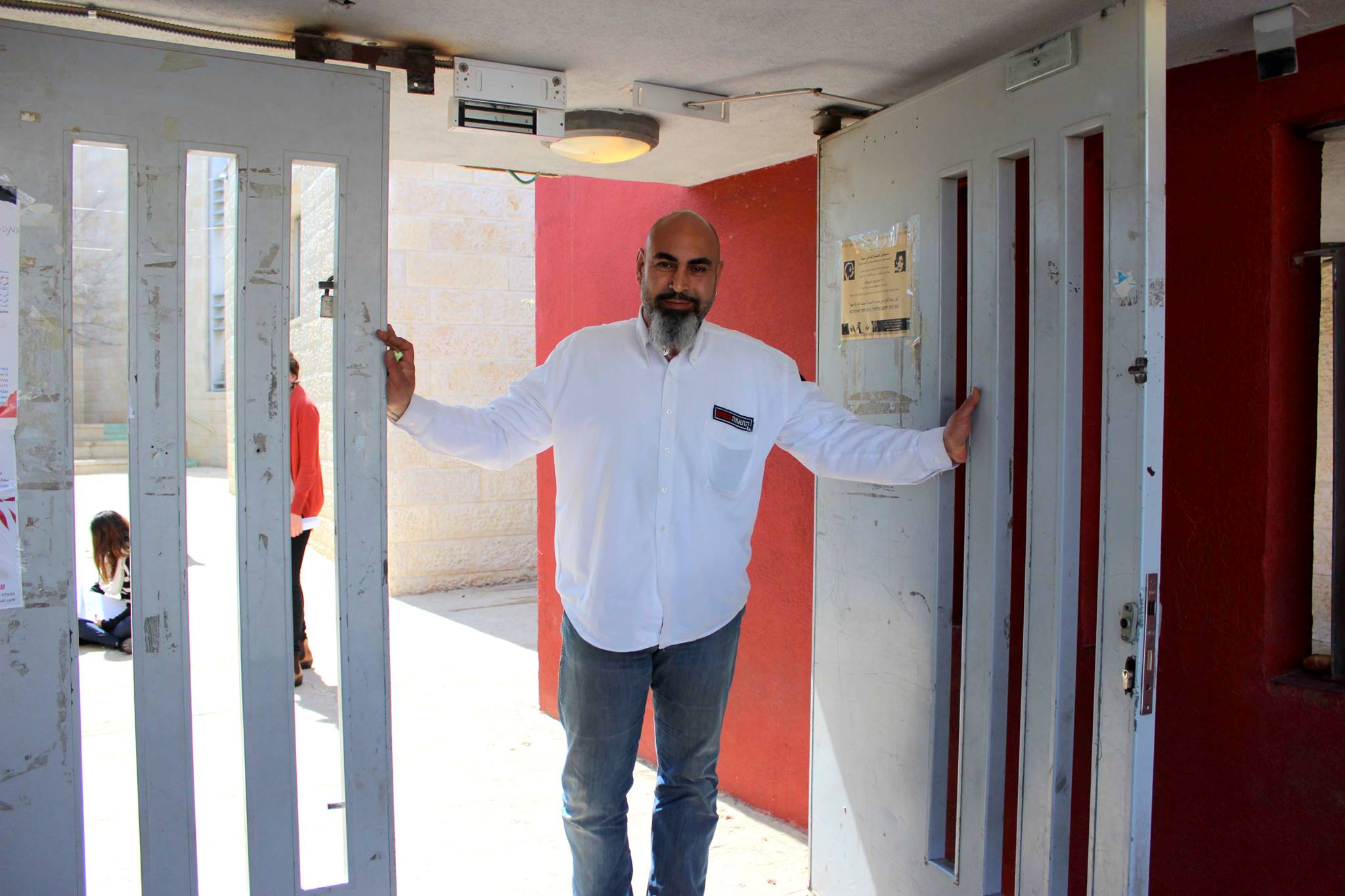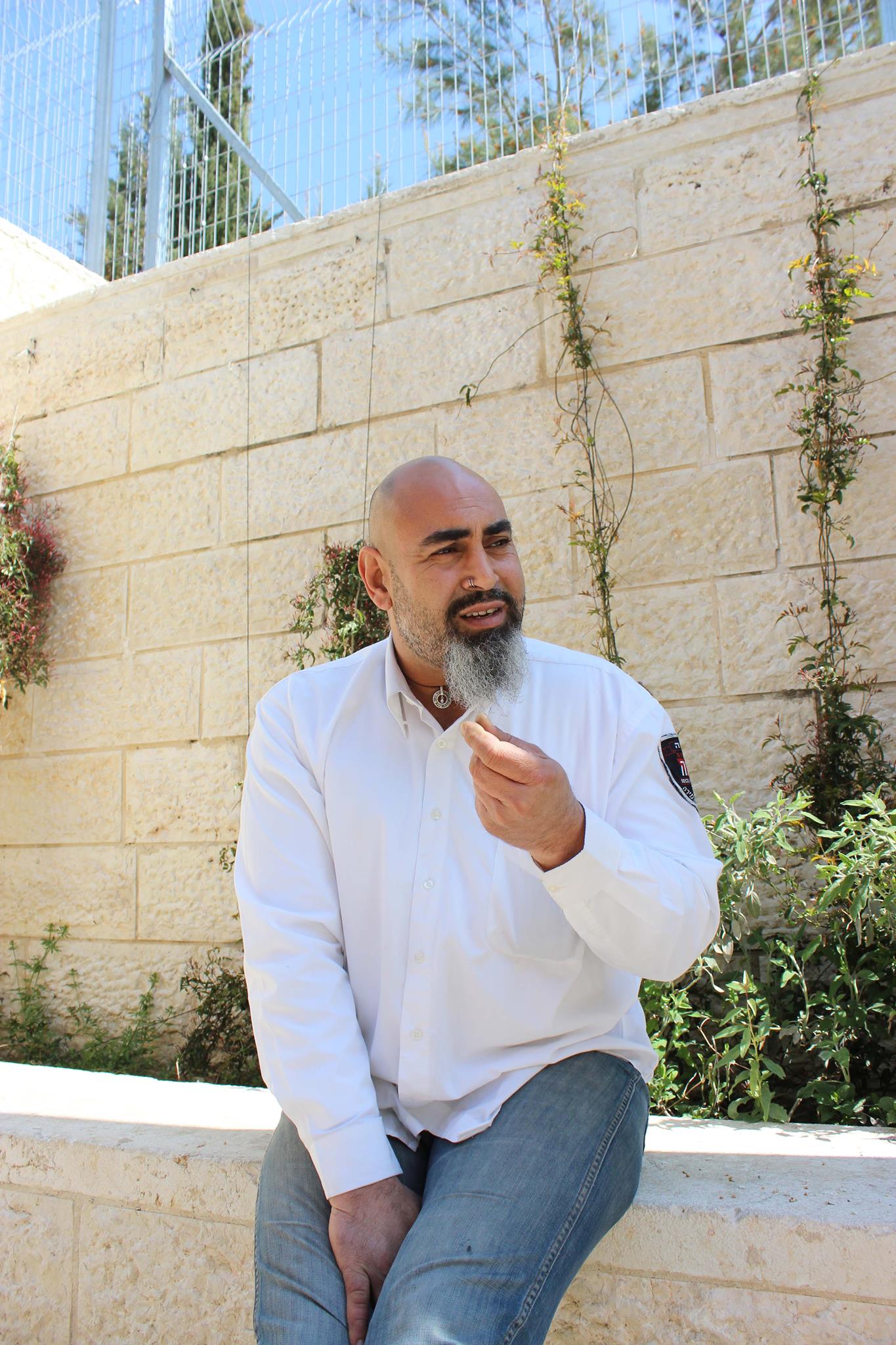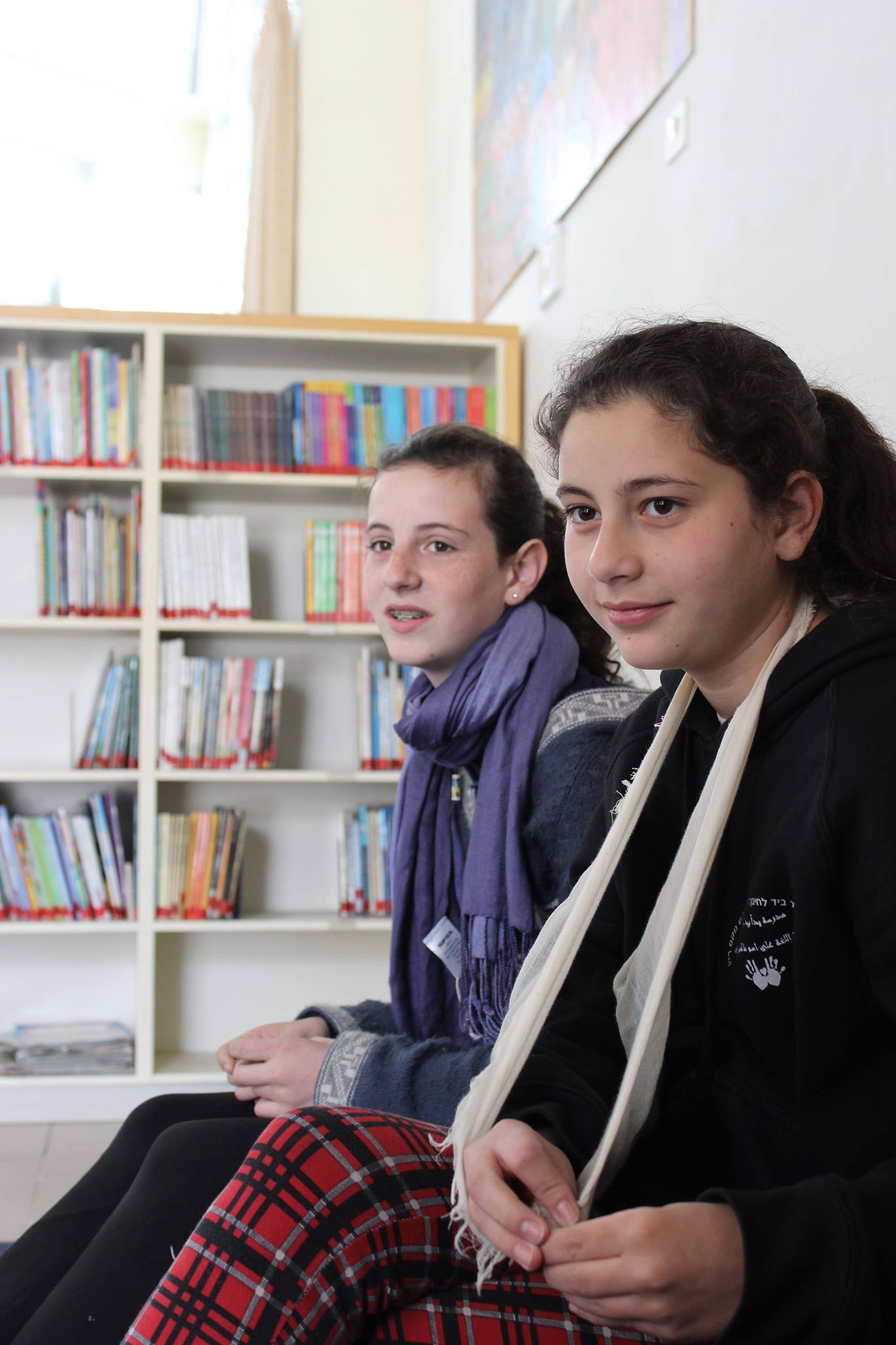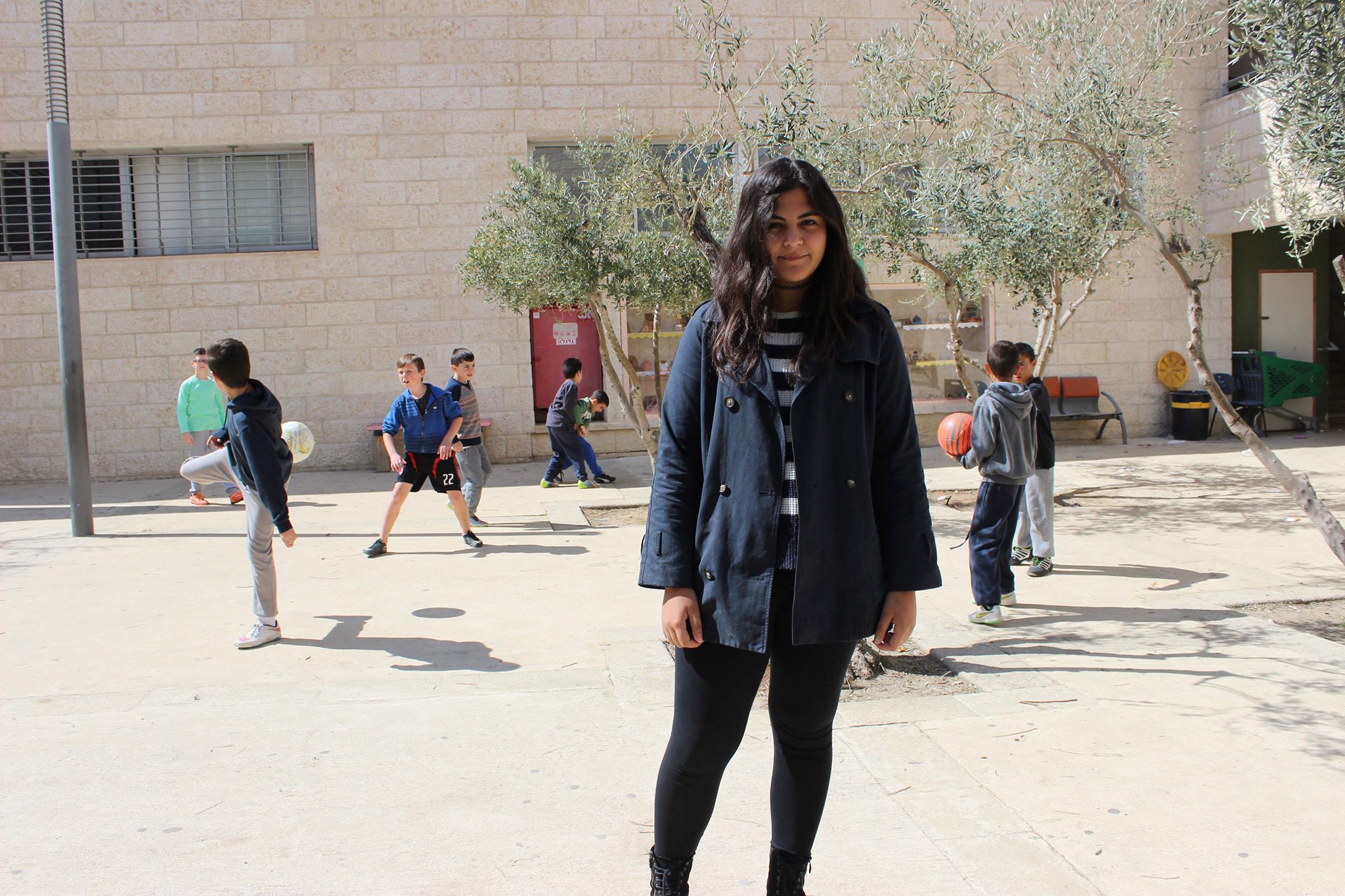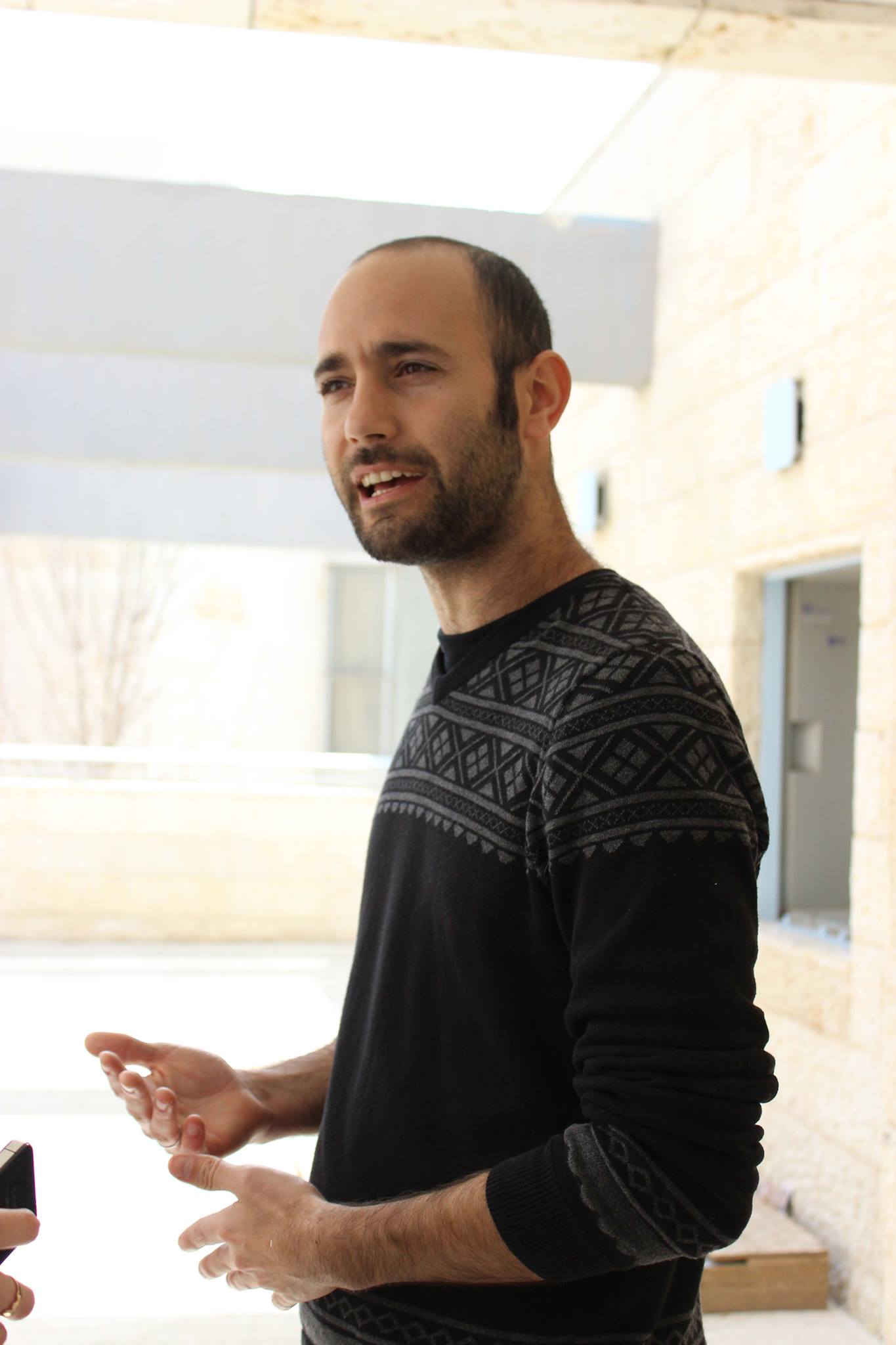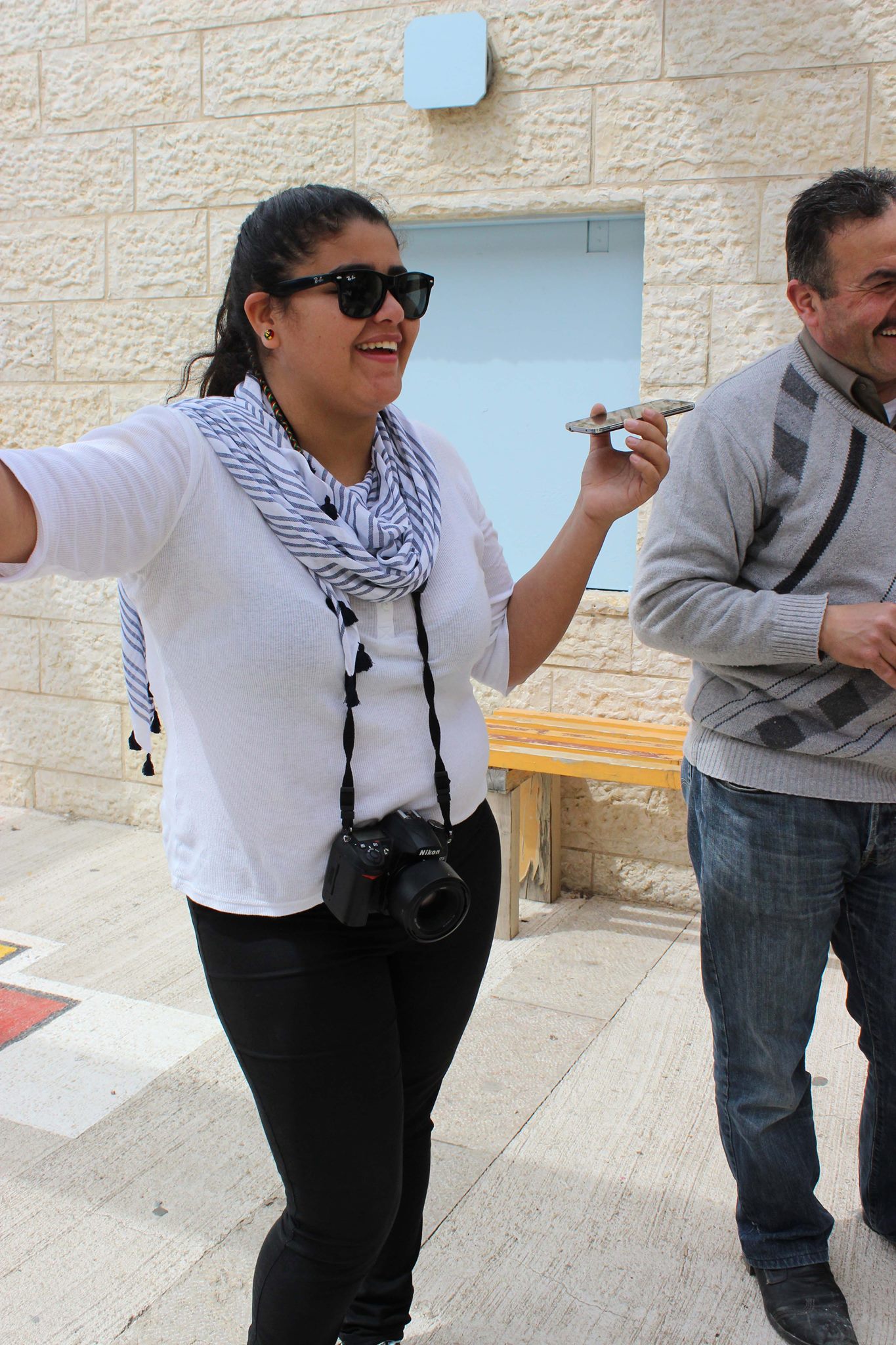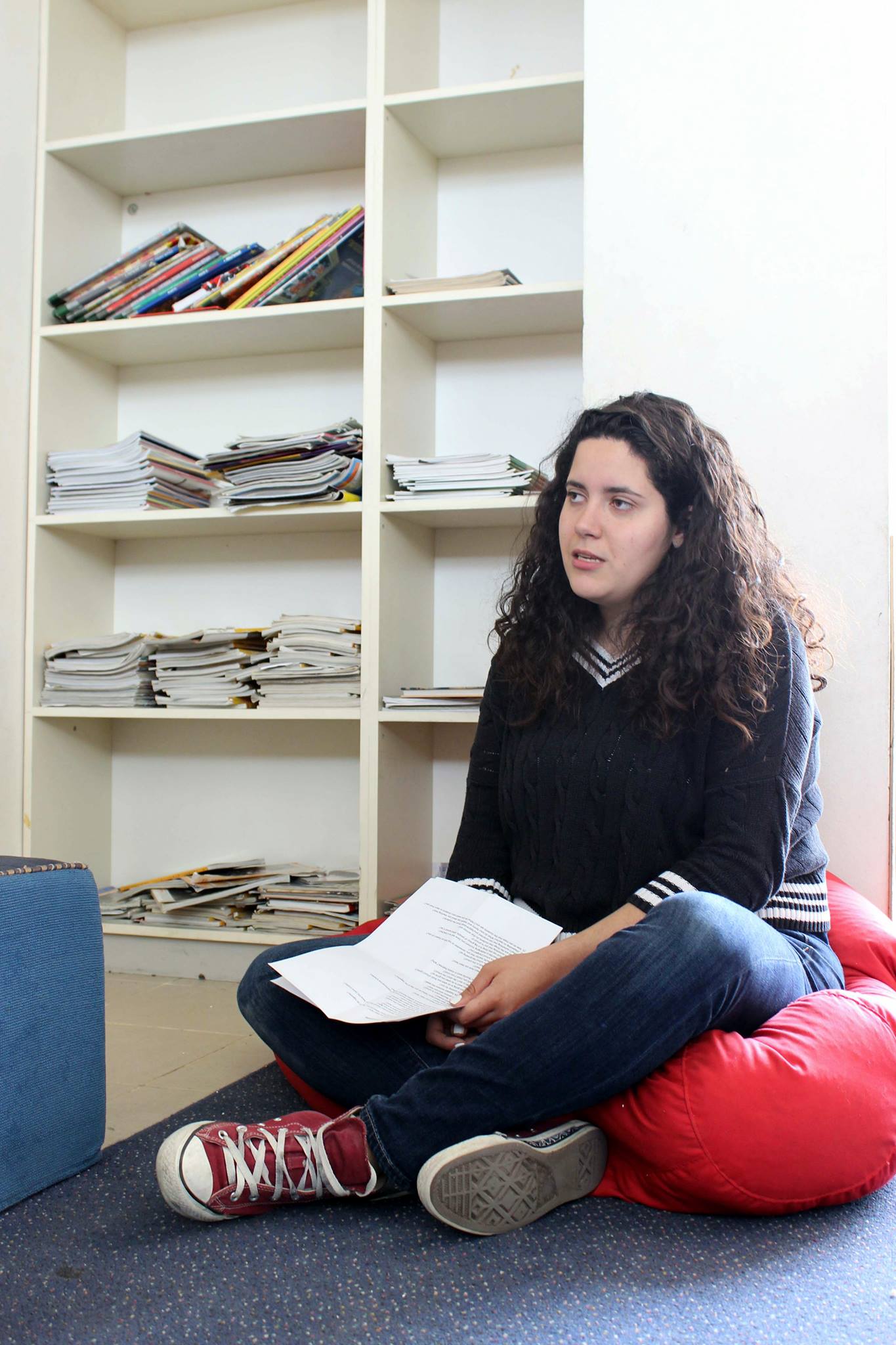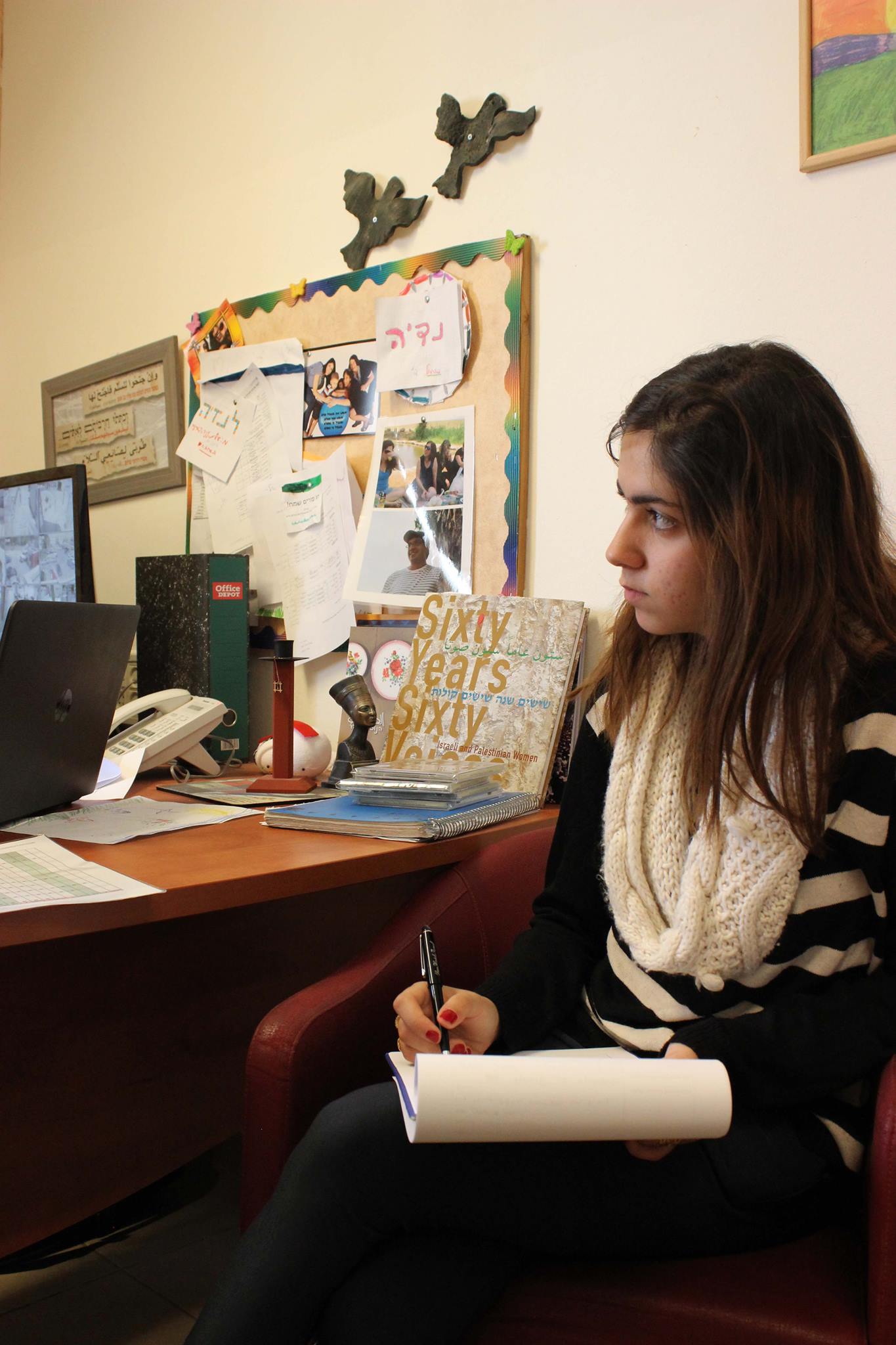Three days ago, Fadel used his key to open the door to his family's cave-home and entered his home again for the first time in twenty years. Three days ago, over three hundred Palestinians, Israelis, and diaspora Jews arrived to Fadel's family lands to be there for him to open his home and return. The joy in the air was palpable as groups propped up a tent on the ruined rock walls of a home from the village of Sarura, as new walls were built, as the cave was cleared of dust and dirt and made habitable. Teams were established to be on clean-up duty and sort out a system for recycling and trash. Other teams were busy preparing the roadway to be repaved to ensure that water could be transported to this remote location and enable quicker transport in an emergency if someone needed to get to a nearby hospital.
Read MoreCoexistence
Women Wage Peace /
It was 32° C (90°F), sweat dripped between my shoulder blades while I stood still. But the warmth I felt was not coming from the desert heat, rather from the company I was in. I was surrounded by thousands of women wearing white who were clapping their hands in unison and leaning forward to hear every word the speakers were saying. Hope rose in waves around us.
Women Wage Peace—the Israeli women’s peace movement that I researched for my masters degree—organized a massive event where for the last two weeks, women have been marching 250km from Rosh HaNikra, the northernmost point of the country next to the border with Lebanon, to Jerusalem. Along the way, they have stopped and met with different communities, and organized events and solidarity marches across the country. All along the way, people met the women and joined them. It culminated on Wednesday with thousands and thousands of people wearing white snaking their way through the streets of Jerusalem from the Supreme Court to the Prime Minister’s house. The organizers claim that it was a crowd of 20,000 people.
The march was a year in the making.
Read MoreBetween a Wall and a Hard Place /
We were walking in the corridors of no-man’s land in the Northern corner of Jerusalem municipality at the edge where the Neve Ya'akov settlement ends and the grey concrete wall that separates Jerusalem from where the West Bank begins. Our professor pointed towards a flat concrete court that was overgrown with brush and prickly plants and mentioned, “Arabs and Jews used to play football there. But that was before they built the wall…”
We were standing in the corner of Neve Ya’akov, a neighborhood that is often classified as just a suburb of Jerusalem, which lies across the green line and hugs the curve of the separation barrier. The distinguishing characteristic between the houses on the left and the houses on the right were striking. One side was clearly Jewish, Jerusalem stones turned yellow with time, white water-boilers speckling the rooftops. The apartments on the right were Arab, bright new stories built up to house more families, black water-boilers dotted their roofs.
Read MoreHumans of Hand in Hand /
I am pleased to present to you, Humans of Hand in Hand: Jerusalem Edition!
Hand in Hand: Center for Jewish-Arab Education in Israel brings together thousands of Jews and Arabs in five schools and communities throughout Israel. They are proving on a daily basis the viability of inclusion and equality for citizens of Israel.
Like their Facebook page and for the next few weeks your news feed will be graced with beautiful photos (taken by yours truly!) and interviews with the teachers, students, and people who work at Hand and Hand and make it what it is.
Support Hand in Hand! It's a wonderful place and they are doing good good work in the face of so much cynicism and violence. Thanks to @humansofny for the inspiration.
Memorial Day /
From the "Monument to Future Victims of the Conflict"
April 21, 2015
It is Israeli Memorial Day. Flags have appeared everywhere seemingly overnight. The music on the radio has shifted to a slow and somber mood. You hear it the moment you step onto the bus where the bus driver nods to you with an air of equal solemnity.
At 8pm, we were driving. A siren sounded, and 5 women with roots in America and various connections to this place got out of the car. We stood on the side of the road in silence and camaraderie. The seconds passed. We got back in the car; we kept driving.
Everyone has lost someone here due to the conflict(s) and wars. Whether it is a young soldier who died this summer, November 2012, Lebanon, Sinai, Yom Kippur, or a friend or family member who was blown up on a bus, in a restaurant, on a street corner. Someone stabbed or attacked randomly. Everyone here has someone. Today the national trauma is worn on the sleeves of every Jewish Israeli.
Israel recognizes 116 soldiers and civilians who died this year.
They're not alone in mourning. 2,314 Palestinians died in Gaza this summer, and 58 in the West Bank this year. This is not including the thousands injured, displaced, or imprisoned. The UN released a report that said the Palestinian death toll in 2014 was the highest ever since 1967. You can read the report here.
Tonight, to commemorate these lives, we attended an alternative memorial ceremony hosted by the Combatants for Peace and the Bereaved Family Forum. The event is unique. It was the 10th year that they brought together Palestinians and Jews to share different stories of loss and to call for an end to the cycle of violence. We heard from a Palestinian woman who's father was shot and killed randomly by a settler. We heard from an Israeli who's brother committed suicide while serving in the army. We heard from a Palestinian man who's 10 year old daughter was shot by a soldier outside her school. And an Israeli mother shared her story of losing her son while he served in Lebanon. It was moving to sit in this hall, filled with people who also chose to memorialize this day differently.
I told a young Israeli whom I know that I was going to this ceremony. She is self-proclaimed to be the most rational, secular person. She was raised in Jerusalem by an American mother who immigrated to Israel and works with an organization fostering relations between Palestinian and Israeli kids in Jerusalem. And yet. She told me that this day, this one day is too much to bear to also include dialogue. Today is a memorial for her friends; it's overwhelming enough as it is, she can't hold onto both stories at the same time. I hadn't thought of that until she shared it with me.
She is going to Mount Herzl for the ceremony that takes place at the military cemetery. She told me that every year, she sees more friends standing there, mourning someone that they lost. And each year, they get younger. It never ends, she said. It just continues, the cemetery keeps growing.
It is for that reason that I believe that alternative events like tonight are essential: to create a place to lay all grief on the table, to be vulnerable and remember together. To find humanness in each other, even in our worst moments. This is the only way to stop the graves from multiplying each year. To prevent the pain held by those left standing, to bring an end to the never-ending list of names that echo when the siren sounds.
Humans of Hand in Hand /
March 23,2015
I spent the day in a utopia. The best part about all of this? It’s real.
I’m volunteering with a mixed school in Jerusalem that is called Hand in Hand. It’s both Arabs and Jews, K-12. The school has been around since 1998 and now has over 600 students.
It’s a public school, and in order to understand just how special that is, you need to understand the Israeli school system. Within Israeli education, there are separate tracks for Arab and Jewish schools. That means different curriculum, different language, separate worlds. This type of school however, is rare. Classes are taught in Arabic and Hebrew, often with 2 teachers in every classroom. They have redesigned their history curriculum to include both narratives and they celebrate and learn about Jewish, Muslim, and Christian holidays. The first class to graduate high school was in 2011.
I spent the day with 3 graduates taking photos and interviewing students, teachers and people who work at the school. We are creating a project similar to Humans of New York, but about the school instead. It will be up on the Facebook page of the school in the next few weeks.
We asked kids questions like, “If you were any kind of food what would you be?” We asked older kids about what it was like for them to come back to school after this summer. Teachers shared what inspired them and the security guard told us he loves cats. Conversation flowed between Hebrew and Arabic without pause.
My favorite moment was when we talked with two 1st graders who’s classroom had been burned in November by extremists (for news coverage of the event see here). We asked if the boys were friends and one said about the other, “He’s annoying in class.” That moment captured for me the beauty of this place. It wasn’t about who was a Jew and who was an Arab. They were just normal 1st graders. But it was also normal to be asked a question in Hebrew and respond in Arabic or vice versa. It was normal to grow up with friends who are different than you. It was normal to have friends who live across the invisible lines that zigzag and cut through this city.
The school is idealistic and may be a bubble, but it is a beautiful bubble and a great place to start. For more info look up Hand in Hand: Center for Jewish-Arab Education.
Passion, Responsibility, Action: A weekend in Beit Jala /

March 15th, 2015
I spent the weekend at a conference with Palestinians and Israelis in Beit Jala, a place only 15 minutes from Jerusalem that sits at the confluence of roads that lies in the space where Israelis and Palestinians both have permission to be. We stayed at a hotel called the Everest, and as we climbed the hill to the very top, it was clear why it was named such.
It was an incredible weekend; there were Palestinians from all over the West Bank near Nablus, Ramallah, Bethlehem and Hebron. Israelis from Jerusalem, Hadera, Sderot and the north. We began the weekend by sharing the thing that is most important to us: family, freedom, silence, music, learning, an end to occupation, peace.
I befriended a young Palestinian from Jericho who plays classical guitar with fingers plucking notes like water. He shared how he can't meet his friends in Haifa because he doesn't have a permit to travel and the frustration he feels being 21 and not able to go 45 minutes away from home. I listened as a young Israeli described how she couldn't return to her work for 2 weeks after a rocket had fallen near it this summer. An older Palestinian from Bethlehem described his experience as a 15 year old when the army would not let him return to his home during a curfew and after making him take the long way around, arrested him. I listened as another Israeli described a moment meeting a Gazan and acting as his legal companion to satisfy permit requirements to reach Jordan. The Israeli shared how it was the Gazan's first time out of Gaza in his entire life—he hadn't seen an orange orchard since he was little. The Israeli took the long way to the Jordanian border with a stop in Jerusalem so that this Gazan could visit al-Aqsa. I sat at breakfast with a Palestinian whose family is originally from Gaza. He described how 15 members of his family died this summer. 11 of them died at the same time when their house was flattened. Yet he continues to come to these meetings. His eyes sparkle when he laughs.
Brought together to share these heavy personal stories, I was surrounded by a lightness. Here we were, a strange mixture of Arabic, English, Hebrew, and patient translations, coming together to talk, to listen, and to be heard.
The second day was devoted to brainstorming sessions: what projects could we create together, what ideas did we want to put into action? Ideas ranged from language exchange, to fundraising for a center for disabled children, to starting a running group and organizing a marathon from Tel Aviv to Ramallah, to trying to humanize the news and remove media bias. Past groups had created Tiyul Rihla, an organization that takes Israelis and Palestinians on tours of historical sites and shares both narratives and Two Neighbors, a fashion line that incorporates Palestinian embroidery in high fashion and is sold in the States. Our ideas were big, yet we broke them down into small steps such as exchanging each other's email addresses. The main goal was to commit to meet again.
I left the bubble from this weekend and I feel hopeful. I am now faced with so many opportunities and new beginnings, new friends and new experiences to come. The weekend was invigorating and inspiring. Good things can begin with something small.
Elections are in 3 days. Hold your breath, knock on wood, and do whatever superstitious ritual you have for good luck. We need it here.
To learn more about the organization that hosts Global Village Square Conferences, click here.
